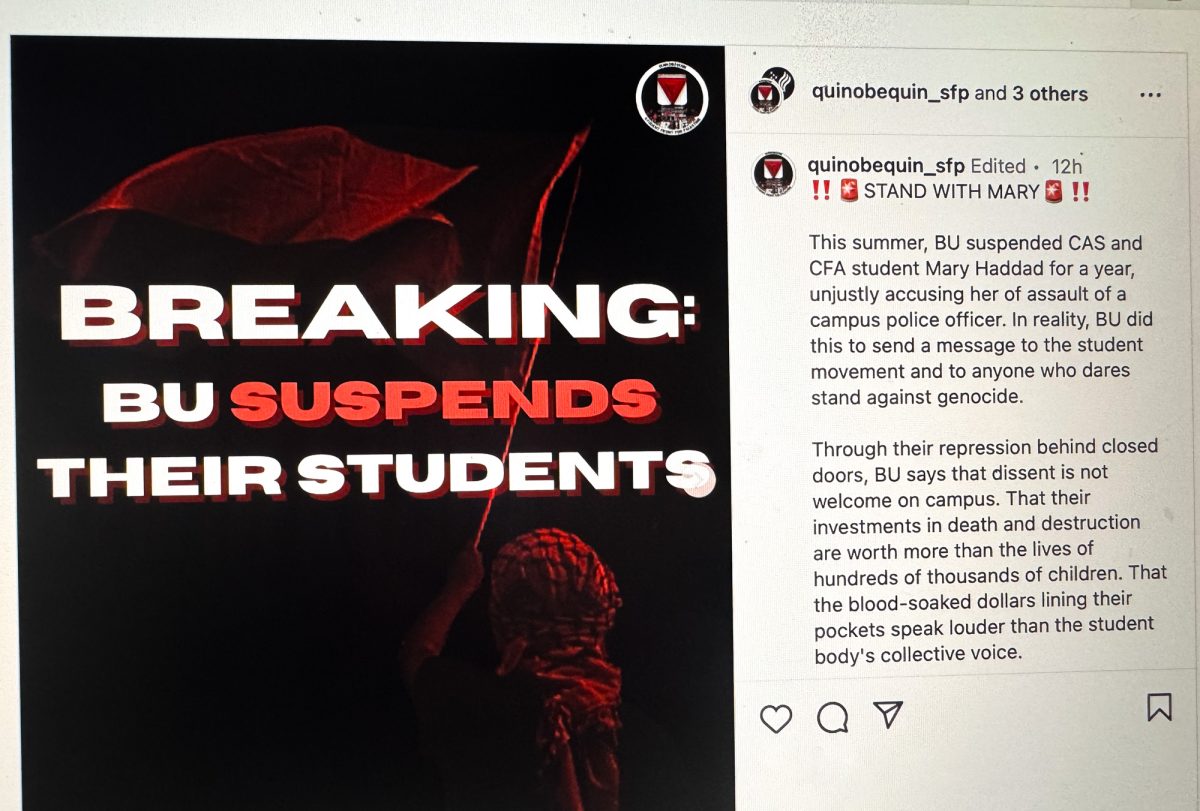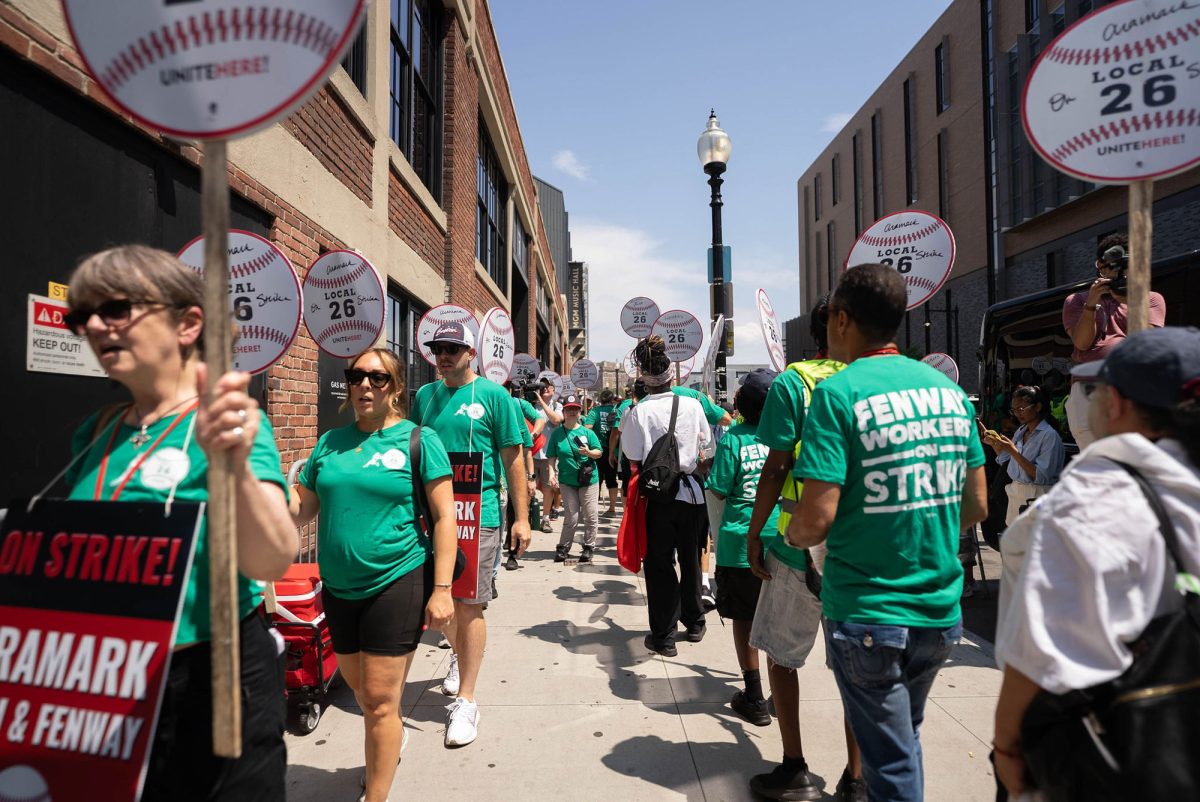Some pieces of art never age. Like fine wine, they get better and better as the years go by, never quite reaching a point when they’re considered out of date.
While listening to my music on shuffle the other day, I had a realization: Last year was tumultuous, and 2021 may bring about even more change. Social rebellion and quests for moral truth remain abundant — from small movements to nationwide protests.

For that reason, there is no song that has aged as gracefully as Bob Dylan’s “The Times They Are a-Changin’.”
The song, which was released in 1963, takes us through the motions of change. Designed to be an anthem for change, Dylan’s message speaks to us just as strongly now as it did half a century ago.
For this week’s article, I decided to revisit lyrics from each verse to try and find contemporary answers to the question of how, when and why to protest.
On that note, come gather ‘round and find what guidance we can pull from an ageless anthem.
“Admit that the waters around you have grown.”
It is often difficult to see the issues of a certain power structure when you are the one benefitting from that structure. Ultimately, this leads to the unfair treatment of one’s constituents. Then, if the imbalance of justice reaches a breaking point, people begin to protest.
As long as there is injustice, there will be protests.
And as long as there is injustice, this is a good thing. Protests usually work to bring inequities to light and impact public opinion. Admitting and acknowledging we wade in the waters of injustice does, in some way or another, bring positive change.

How that works — or why it doesn’t in certain situations — is, however, a completely different story.
“Don’t speak too soon, for the wheel’s still in spin.”
Protests don’t work in the timeline that we assume they do. It is not the momentary call to action, nor the takeover of a street or building, that creates change. It’s rather the constant push for better policy and behavior and the one-too-many mornings spent prepping for one more event, one more conversation, one more day — with the constant hope that the future will be brighter.
Being a protestor and activist is a thankless job. Often, you don’t get to see the fruits of your labor, only others’ resistance to change.
But that’s how it works. The wheel moves, slowly but surely, and as long as the circle stays unbroken, progress is soon rolled in. The change is slowly made within ourselves and in every fabric of society, which means activism can’t just happen overnight.
We must take heed of this. Our work is not done after one social media post or even attending one rally. As long as a resistance effort is in the public eye, there will be push back. We cannot celebrate an individual victory as if we won the war.
Protestors must also be aware of the responsibility they carry. A successful protest is not one that coerces people into a belief that isn’t their own, but rather one that informs and allows people to come to the right conclusion themselves. Open conversation is imperative, and protests are not a one-way street. We must seek to find common ground with those we don’t agree with.
“He that gets hurt will be he who has stalled.”
The greatest myth we’ve been fed as civilians is that society is stagnant. We are taught there is a status quo that is either barely shifted or steadfastly maintained.
Instead, we must think of our society as an ever-growing, ever-changing union. No day is ever the same because progress toward a better tomorrow starts with a different today. In other words, change is inevitable.
As the ancient Greek philosopher Heraclitus said, “There is nothing permanent except change.”
We all have a civic duty to listen to agents of change — such as protestors — and approach them with an open mind. Common ground is not met by keeping firm in place, nor is it even met at a perfect halfway point. Each issue has an individual spot where we can connect, and it is on the rest of us to find that spot as best we can.
Those who remain unmoved will be those who are left behind tomorrow.
This does not mean you must agree with any and all protests you engage with. You are allowed to be, and should be, skeptical. However, you must be open to conversation, even when it makes you uncomfortable.
We all must be actively involved to change.
The fourth verse of the song says, “Your sons and your daughters are beyond your command.”
Unfortunately, change is difficult. Not only does change take us out of our comfort zone, but it also forces us to reckon with our morals and identity. For some who grew up fostering their own kind of change — such as in the civil rights movement — it may also be difficult to see younger generations attempting to change what you thought you already fixed.
That is just the way it goes. What we — or God — deem to be morally right changes and shifts as our moral landscape develops. What was once the moral action, or at least was admissible, is now immoral, and vice versa.
The job of a protester is to shake foundations and signal those shifts. But all sides must take accountability in this fight.
Protesters must understand that the change they fight for may make some people uncomfortable or be taken as a personal attack. If you want to create real change, though, you must steer clear of ad hominem arguments and be headstrong in your commitment to positive change.
At the same time, those who are not protesting must understand the great pillars of society often result from protests. Even if you are against a protested issue, you must keep your ears open and try to identify what biases could be preventing you from listening.
“The present now will later be past.”
What we do today determines who we become tomorrow. The values we fight for, as well as the struggles we overcome, represent who we are as a society and as a nation. Progress is slow but inevitable.
Fifty-eight years ago, Bob Dylan released his protest anthem. Now, and forevermore, the times are a-changin’.


























































































































Jesse B • Feb 19, 2021 at 12:23 am
Joel, you paint with very broad and shallow stokes. Change is easily said, but harder to accomplish. It is achieved through selflessness and compromise, not blaring trumpets and banging gongs. The pursuit of peace and harmony results in conflict more often than not. This may be mankind’s greatest challenge. Don’t take the easy road, but challenge yourself with the hard road.
Pamela Brown • Feb 18, 2021 at 3:20 pm
Let’s not forget:
Come senators, congressmen
Please heed the call
Don’t stand in the doorway
Don’t block up the hall
For he that gets hurt
Will be he who has stalled
There’s a battle outside and it is ragin’
It’ll soon shake your windows and rattle your walls
For the times they are a-changin’
Glenn Brandsma • Feb 17, 2021 at 9:45 am
Great article Joel. Well written, and well thought out. Congrats!!